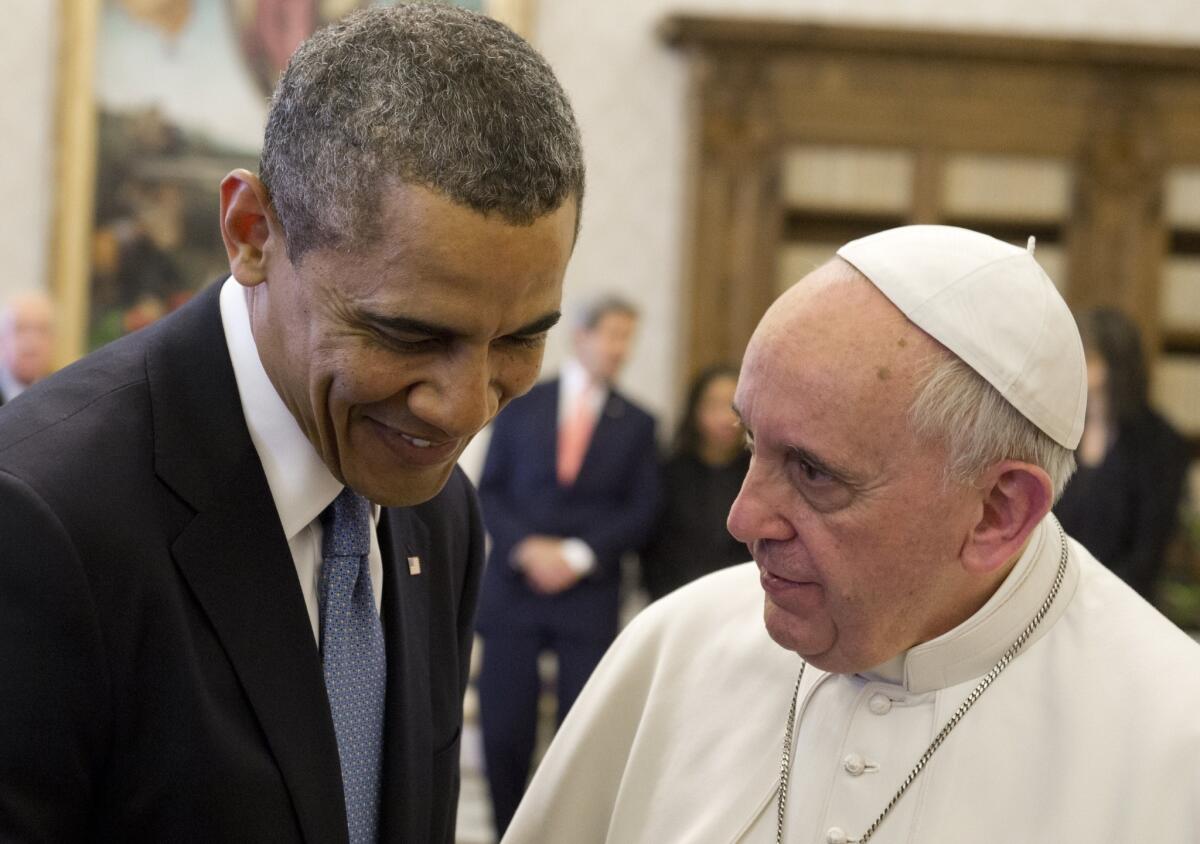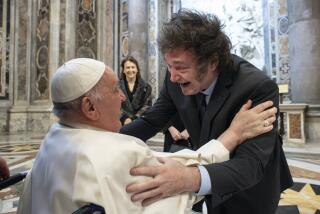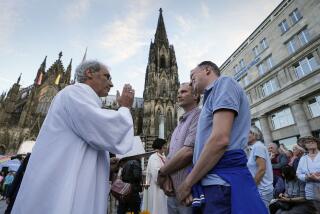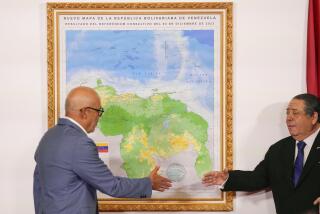Obama aides discuss Vatican role in warming relations with Cuba

President Obama and Pope Francis speak in March 2014 in a private audience at the Vatican.
In an ornate room at the Vatican, surrounded by portraits of popes from across the centuries, a panel of robed clerics listened as negotiators laid out a potentially historic deal: the resumption of relations between the United States and Cuba after more than half a century.
President Obama’s aides spoke, as did those for Cuban President Raul Castro. A cardinal pledged the Vatican’s support, urged them to keep talking and sent them on their way.
Outside the gates in St. Peter’s Square that day in September, Obama’s two lead negotiators paused to marvel at their Vatican blessing – the seal they believed would finally thaw the diplomatic freeze between two bitter Cold War enemies.
“It’s hard to think of another figure or institution that could fulfill that role,” said Ben Rhodes, one of the two. Rhodes and his teammate, Ricardo Zuniga, celebrated with a pasta dinner.
Obama and Castro both thanked Pope Francis when they announced the diplomatic breakthrough on Dec. 17. Fresh details of that Vatican meeting and other closed-door sessions emerged in interviews with Obama’s aides this week as he took their work to the next phase.
The two presidents, who have met before, shook hands Friday night as leaders from around the region gathered in Panama City for a weekend summit, though National Security Council spokeswoman Bernadette Meehan said they had no substantive discussion at that moment.
The two leaders chatted on the phone Wednesday night about reopening embassies in Washington and Havana and other points of “diplomatic normalization,” according to the White House.
Obama told reporters he is nearing a decision on whether to drop Cuba from a U.S. list of state sponsors of terrorism, a key Cuban demand for improving relations and allowing U.S. investment.
Most importantly, Cuba is being allowed to participate for the first time in the Summit of the Americas. U.S. objections have previously barred Cuba from attending the gathering so this year marks something of a celebration of the new relationship even as diplomats continue to work out the details.
“Cuba’s participation does signal a new chapter,” Rhodes, the White House deputy national security advisor, said Friday.
“We are in new territory here,” he added, alluding to both the phone call and a meeting Thursday night between Secretary of State John F. Kerry and Cuban Foreign Minister Bruno Rodriguez, the first such meeting in 57 years.
A papal representative is attending the summit in a sign that Pope Francis is still casting a watchful eye – and may try to help unravel other diplomatic knots.
Current and former White House aides say the success in the talks so far may put pressure on other leaders to search for diplomatic solutions.
“It’s symbolically quite important,” said Dan Restrepo, Obama’s former Latin America advisor and now a consultant on issues of the Americas. “Having removed this excuse, you make it more difficult for those whose basic political narrative in the Americas is to rail against the empire,” meaning the U.S.
From its beginnings in the Situation Room in November of 2012, the plan relied on two divergent components – negotiations by low-key staffers and support at the highest levels of the Roman Catholic church.
For other tough talks of his second term, Obama would turn to global figures such as Kerry or Vice President Joseph Biden.
But for the Cuba talks, Obama dispatched Zuniga, a mid-level diplomat, when Restrepo left. A career foreign service officer, Zuniga had worked in human rights at the U.S. office in Havana.
Rhodes was Obama’s chief foreign policy speechwriter, a former novelist who had taken part in every important White House decision on national security. When Rhodes spoke, Obama advisors believed, Cuban officials would understand he was speaking for the president.
“It was important that we were close to the president,” said Rhodes, “but low enough in profile to be able to disappear for a day or two every two or three months.”
They disappeared to Ottawa and Toronto a total of nine times, starting in summer 2013. They met with peers of a comparable level from the Cuban side, people they won’t identify even now.
From the outset of talks, the sticking point was the Cubans’ demand for the release of several Cuban spies from U.S. prisons in exchange for release of Alan Gross, a U.S. government subcontractor who had been imprisoned in Cuba for five years.
In January 2014, the U.S. side proposed swapping the Cuban spies in Florida for a jailed Cuban official who had worked for U.S. intelligence - but only if Gross were also let go on humanitarian grounds.
Rhodes and Zuniga then introduced another idea: that the releases could be the basis for broader policy changes.
All along, the Vatican had sent signals that the first Latin American pontiff wanted to help. U.S. bishops, including those close to White House Chief of Staff Denis McDonough, a devout Catholic, also agitated for a change in policy toward Cuba.
Last March, Obama met with Pope Francis for an hour-long meeting at the Vatican that focused more on Cuba than any other topic. The pope said it was “past time” for change. Obama said he had something in the works and asked for help.
Francis sent letters to Obama and Castro urging them to work things out. A few weeks later, the archbishop in Havana told Cuban officials that the Vatican was interested in acting as a witness, or guarantor, to whatever emerged in the talks.
“It started to transfer into the outlines of this agreement,” said Rhodes. They effectively closed the deal before the panel of clergy at the Vatican in September.
On Friday, Rhodes acknowledged that serious differences will continue between the two nations even after embassies reopen.
He also criticized Cuban pro-government elements who scuffled with Cuban dissidents in Panama this week. Both groups engaged in shouting matches, and came to blows at one point. Rhodes called it “grossly inconsistent with the spirit of dialogue” at the leaders’ summit.
Parsons reported from Washington and Memoli from Panama City. Times staff writer Tracy Wilkinson in Panama City contributed to this report.
Follow @cparsons, @mikememoli and @TracyKWilkinson on Twitter
More to Read
Start your day right
Sign up for Essential California for news, features and recommendations from the L.A. Times and beyond in your inbox six days a week.
You may occasionally receive promotional content from the Los Angeles Times.








